AGENCY SPOTLIGHT: Richmond Police Achieve 32% Reduction in Traffic-Related Fatalities in 2024
One of the goals of our newsletter is to highlight best practices and strategies employed by law enforcement agencies and/or partnerships that lead to success stories in highway safety. In this issue, we'll examine how the Richmond Police Department reduced its traffic fatality numbers from 25 in 2023 to 17 in 2024.
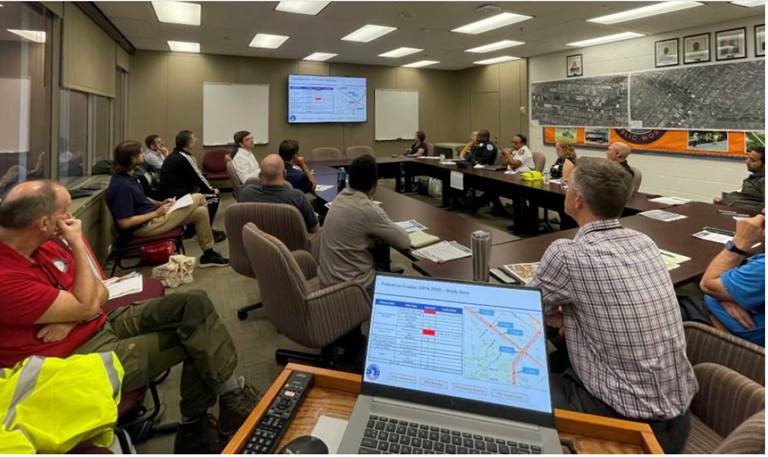 A meeting of the Roadway Safety Assessment Team for the Broad and Belvidere Street intersection, which is an intersection in the data driven “high injury network.”
A meeting of the Roadway Safety Assessment Team for the Broad and Belvidere Street intersection, which is an intersection in the data driven “high injury network.” The City of Richmond utilizes the Vision Zero Network, which is a multidisciplinary strategy aimed at eliminating injury and fatality traffic crashes while increasing safe, healthy, and equitable mobility for everyone. The multidisciplinary Team conducts Roadway Safety Audits (RSA’s), a formal safety performance examination. It qualitatively estimates and reports on potential road safety issues and identifies opportunities for improvements in safety for all road and sidewalk users.
The high injury network is defined as roadways with a high rate of crashes and injury. City Traffic Engineer and Vision Zero Coordinator Michael Sawyer states that “data analysis reflects that approximately 76% of fatalities and serious injuries occurs in only 9% of the network. Our focus on enforcement and change the ‘built environment’ (road structure) in the high injury network plays a significant role in our fatality reduction.”
City leadership, police, and public works are key partners in the Vision Zero Network.
City Leadership
The Richmond City Council publicly committed to the implementation of the Vision Zero Plan and approved a supporting resolution for the program. Additionally, the City approved and adopted ordinances to reduce traffic fatalities, such as lowering speed limits on city streets from 45 MPH to a maximum of 35 mph, and lowering speed limits from 35 MPH to 25 MPH in the High Injury Network.
9 Components of a Strong Vision Zero Commitment >>
Police Leadership
On January 16, Chief Rick Edwards reported a 32% reduction in traffic fatalities during his 2024 end of the year review. He stated that, “all 17 fatalities represent a human who is no longer with us. I am pleased with the reductions, but it is tragic and preventable in most cases.”
Captain Anthony Jackson, Commander of the Special Operations Division and Lieutenant Mark Simms, OIC Traffic Division, both echoed collaboration and partnerships as integral to the successes in the Vision Zero strategy and fatality reductions. They listed a variety of factors and strategies employed by the Police Department that played a part in the 32% reduction in traffic-related fatalities and 10% reduction in serious injury crashes.
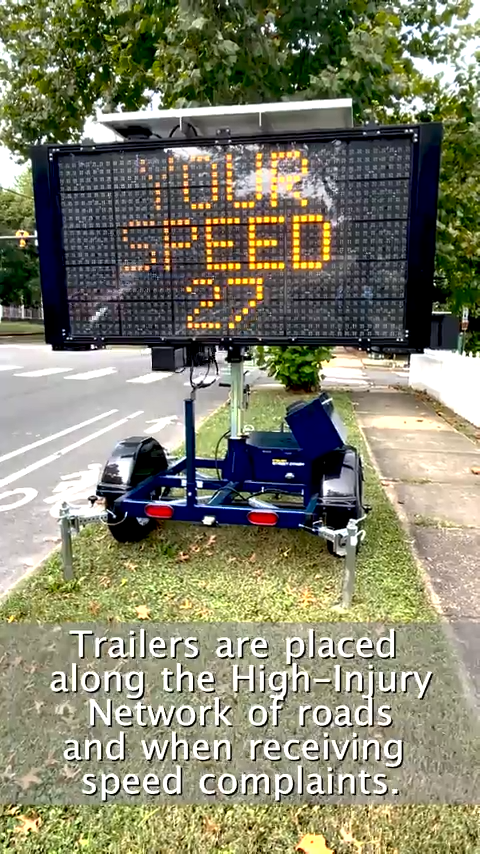
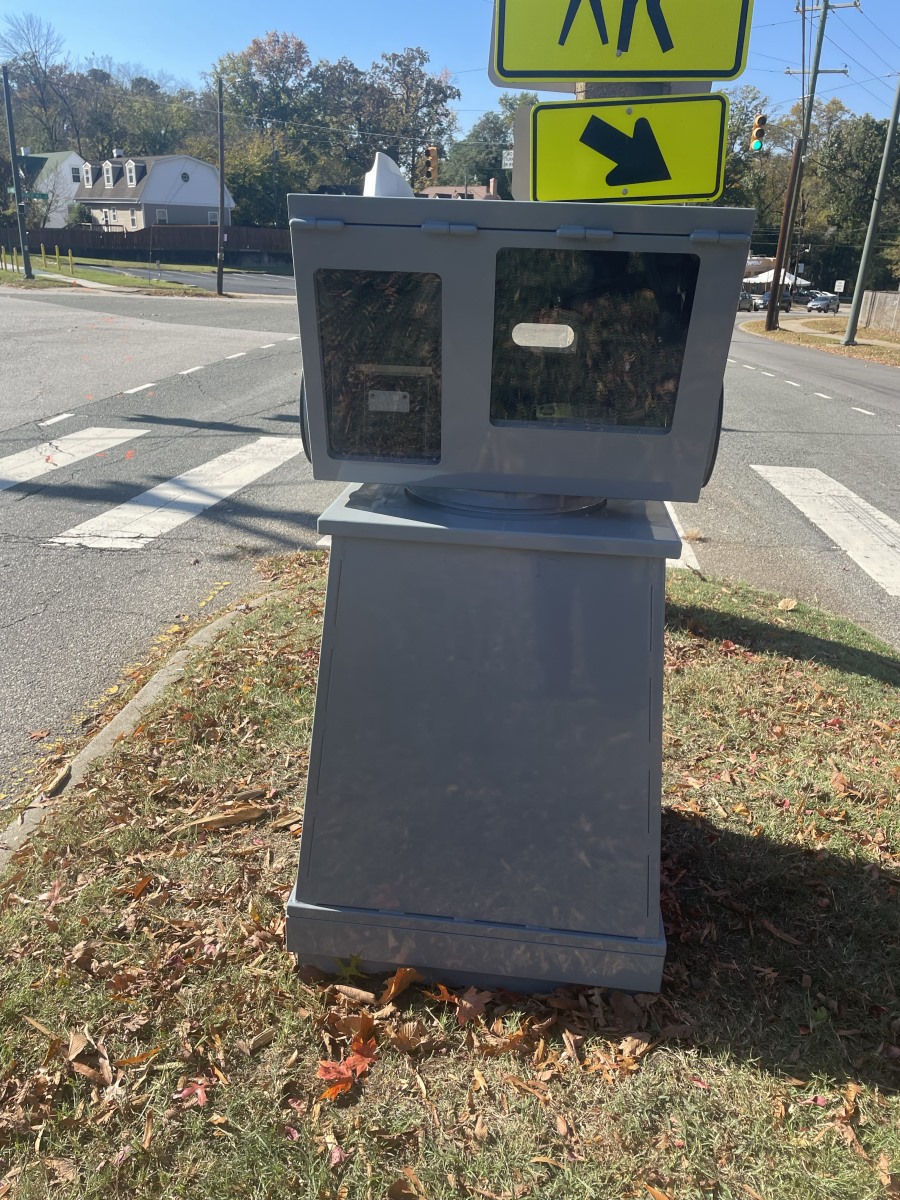
They include the following:
- Chief and supervision at all ranks focus on highway safety.
- 29% increase in 2024 in traffic summonses related to speed compared to 2023.
- Data driven deployments for traffic enforcement in the high injury network.
- Hiring back retired Richmond Police officers part-time for traffic enforcement duties with vacant officer position funding.
- 22% increase in DUI/DUID arrests.
- DMV Speed Enforcement Grant Funding for overtime initiatives
- Speed Trailer / Message Board Deployments in a high injury network.
- DUI Checkpoints & Enforcement – 22% increase in arrests in 2024.
- Officer training in Radar Instruction and Crash Investigation.
- Increase in number of radar certified officers and equipment for patrol officers.
- Safety Camera Program with 13 School Zone cameras; part-time retired officers hired back to review speed violations. Media exposure and ticketing may have helped people to think about slowing down.
- Richmond and VCU Police Command Personnel participation in Roadway Safety Audits and Vision Zero stakeholder meetings.
- Social Media Messaging and Public Service Announcements.
Captain Jackson states that, “with all fatalities we look behind the number.” The Crash Investigation Team leaves no stone un-turned on the causes of a fatality. For example, crash investigators conducted a site survey at a pedestrian fatality location to help determine the reasons and associated factors contributing to the crash. The extensive examination was shared with the Roadway Assessment Team, allowing for effective countermeasures to reduce their occurrence and severity.
Public Works /Traffic Engineering
The Richmond Department of Public Works is fully committed to Vision Zero. Traffic Engineer Michael Sawyer is the coordinator and all stakeholders meet quarterly. Lt. Simms stated, “Sawyer is all in and very engaged.” To ensure transparency and public engagement, the team provides regular updates on the progress of Vision Zero. There is access to a public dashboard tracking fatality and serious injury data prepared by the Richmond Police Department. This data empowers the community to identify safety issues and supports informed action toward safer streets.
Incorporating recommendations from the Vision Zero Task Force, DPW uses the “complete streets” approach along with Vision Zero principles to change the build environment to make roadway and safety improvements, such as:
-
The construction of 200 speed tables citywide this current fiscal year using local funding.
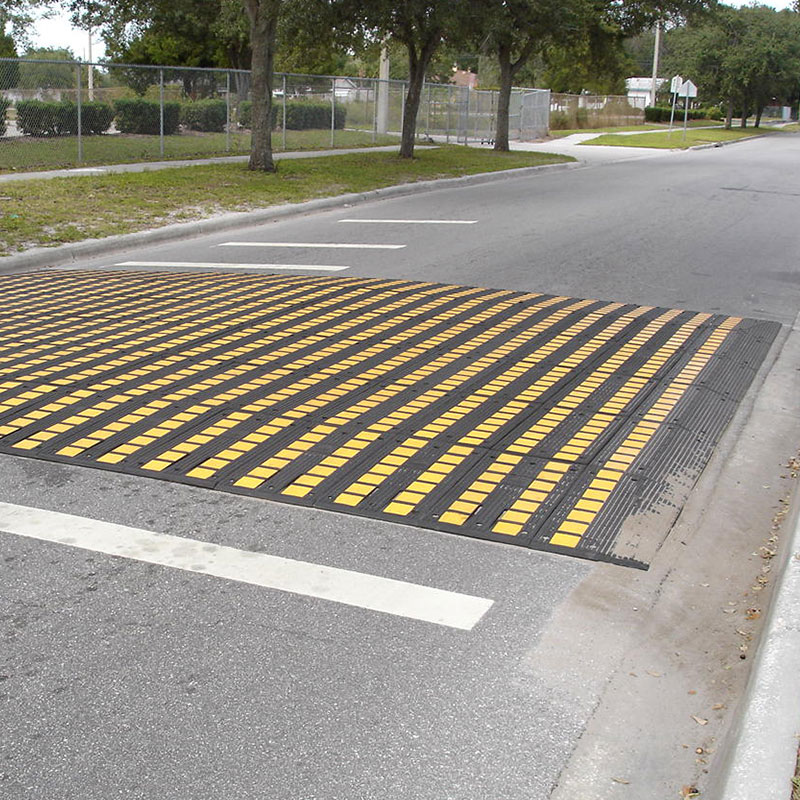 Speed table
Speed table
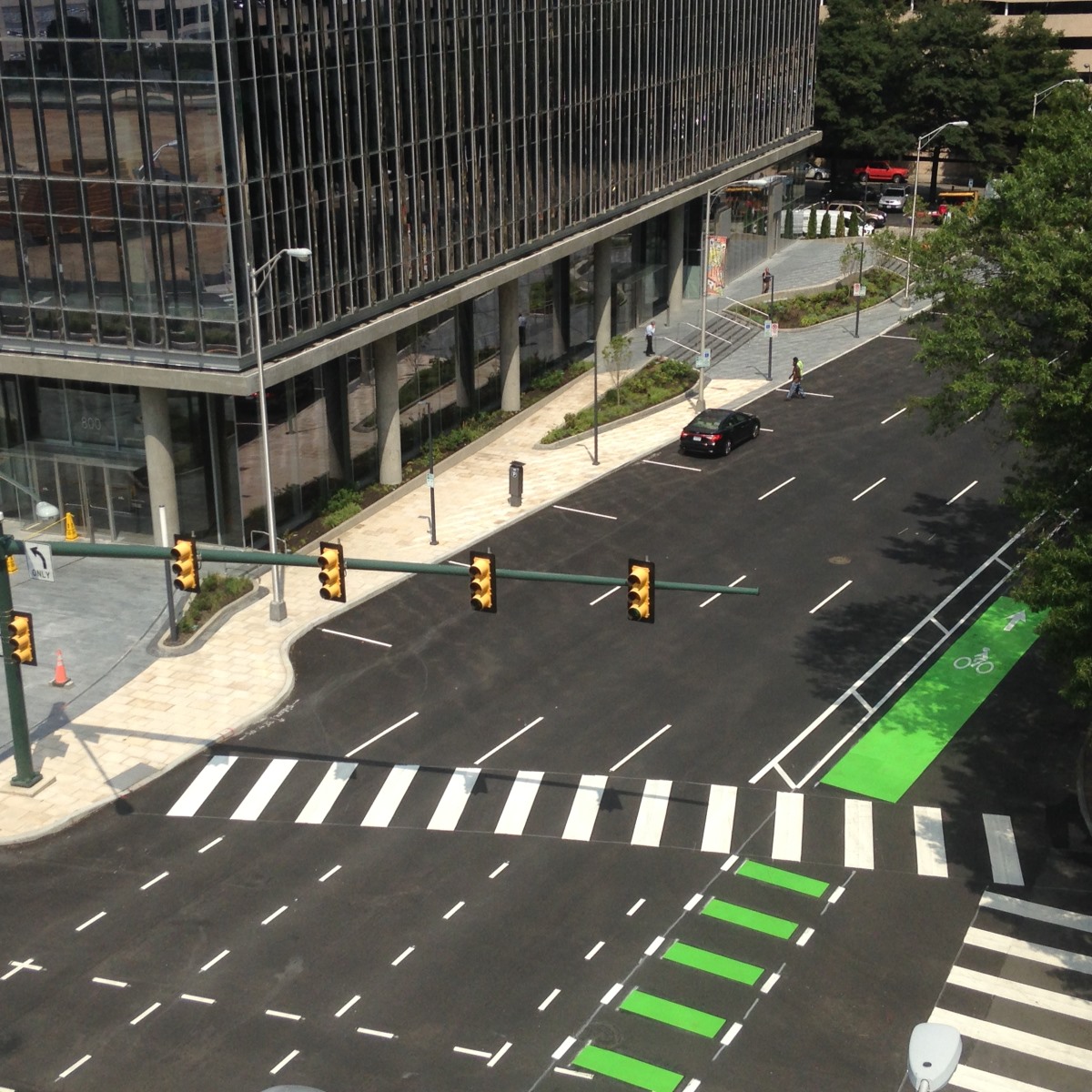 Newly-designed intersection in high injury network
Newly-designed intersection in high injury network - The implementation of traffic calming measures with additional crossing enhancements for people to walk, bike, or ride transit.
- The installation of pedestrian hybrid beacons for people crossing multi-lane streets.
- The reallocation of street space using roadway conversions to provide quick build bike infrastructure using the City’s resurfacing program.
- The construction of accessible sidewalks with pedestrian countdown signals and high visibility crosswalks to transit stops.
- The conversion of intersections into modern roundabouts.
- Securing over $1.2 billion in federal, state, and regional grants over a six-year period to change the built environment within the high injury network.
- Engaging the public on developing a safety culture through symposiums.
- Social media messaging and public service announcements (English and Spanish) on pedestrian and roadway safety.
The holistic approach under the Vision Zero strategy has saved lives in the City of Richmond.
